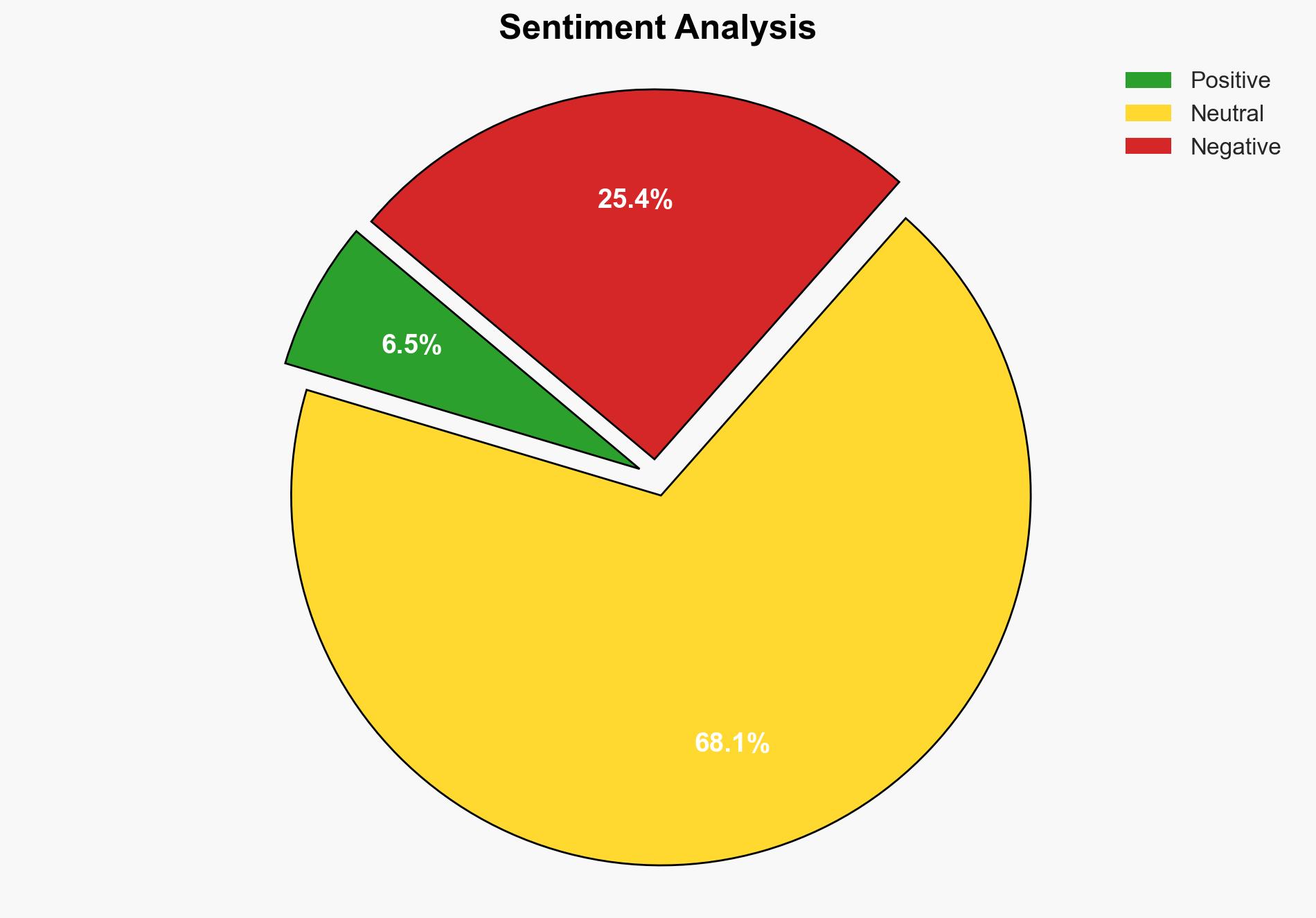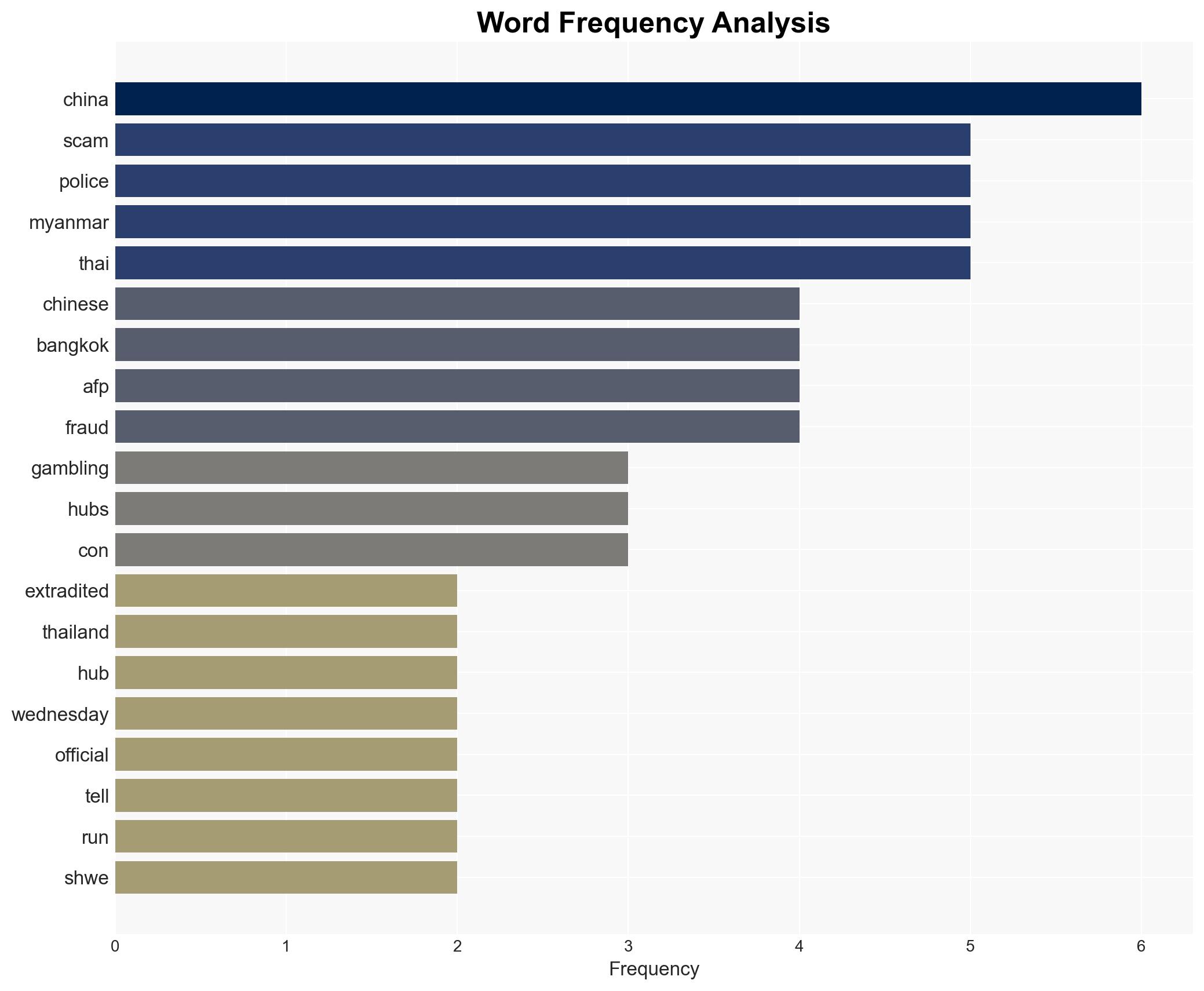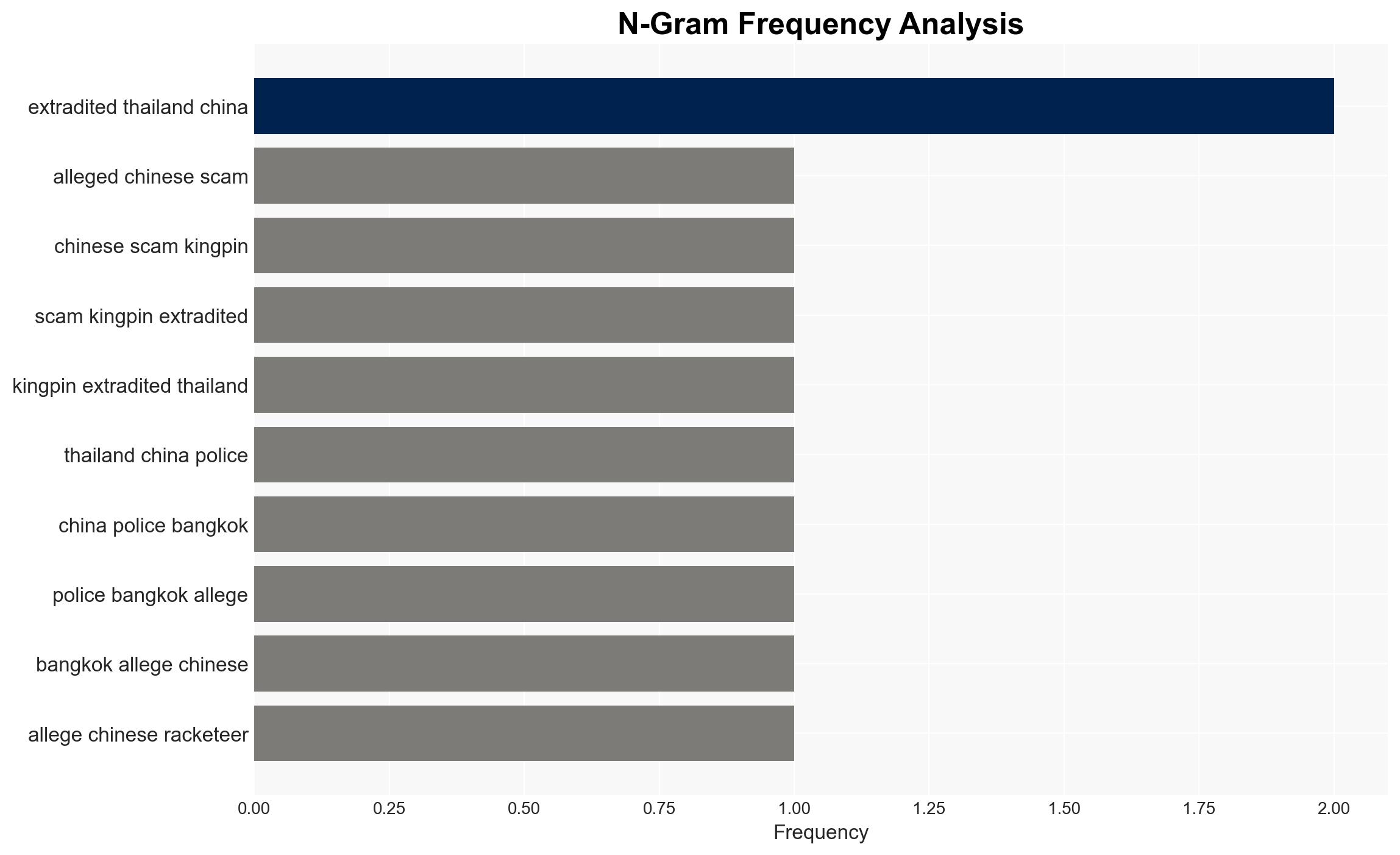Alleged Chinese scam kingpin extradited from Thailand to China Police – CNA
Published on: 2025-11-12
AI-powered OSINT brief from verified open sources. Automated NLP signal extraction with human verification. See our Methodology and Why WorldWideWatchers.
Intelligence Report: Alleged Chinese scam kingpin extradited from Thailand to China Police – CNA
1. BLUF (Bottom Line Up Front)
With a moderate confidence level, it is assessed that the extradition of the alleged Chinese scam kingpin from Thailand to China is part of a broader Chinese strategy to dismantle transnational criminal networks that exploit regional instability. The most supported hypothesis is that China is leveraging international cooperation to combat cybercrime and fraud operations that undermine its national security and economic interests. Recommended actions include monitoring China’s international law enforcement collaborations and assessing the impact on regional criminal activities.
2. Competing Hypotheses
Hypothesis 1: The extradition is a genuine effort by China to dismantle a significant criminal network involved in online gambling and fraud, which poses a threat to its national security and economic stability.
Hypothesis 2: The extradition is a strategic move by China to exert influence over regional criminal hubs and assert its dominance in Southeast Asia, potentially using the legal process as a tool for political leverage.
Hypothesis 1 is more likely given the international pressure and cooperation involved, as well as the documented impact of these scams on Chinese citizens and global financial systems.
3. Key Assumptions and Red Flags
Assumptions: It is assumed that the extradition process was conducted following international legal standards and that the charges against the individual are substantiated by credible evidence.
Red Flags: The involvement of multiple jurisdictions and the potential for political manipulation in extradition processes. The claim by the accused’s attorney that the allegations are fabricated and concerns about due process and human rights violations.
4. Implications and Strategic Risks
The extradition could lead to increased tensions between China and countries hosting similar criminal networks, potentially affecting diplomatic relations. There is a risk of retaliatory actions by criminal organizations, including cyberattacks or increased criminal activity elsewhere. The crackdown may also drive these networks further underground, complicating future law enforcement efforts.
5. Recommendations and Outlook
- Monitor China’s international law enforcement collaborations to assess the effectiveness and potential geopolitical implications.
- Encourage regional cooperation in addressing transnational crime while ensuring adherence to international human rights standards.
- Best-case scenario: Successful dismantling of the criminal network leads to a reduction in regional cybercrime and fraud.
- Worst-case scenario: Escalation of regional tensions and increased criminal activity as networks adapt to law enforcement actions.
- Most-likely scenario: Continued pressure on criminal hubs with mixed results in terms of crime reduction and regional stability.
6. Key Individuals and Entities
Zhijiang: Alleged scam kingpin extradited to China.
Yatai Company: Alleged front for criminal activities, sanctioned by the US and UK.
7. Thematic Tags
National Security Threats
Structured Analytic Techniques Applied
- Cognitive Bias Stress Test: Expose and correct potential biases in assessments through red-teaming and structured challenge.
- Bayesian Scenario Modeling: Use probabilistic forecasting for conflict trajectories or escalation likelihood.
- Network Influence Mapping: Map relationships between state and non-state actors for impact estimation.
Explore more:
National Security Threats Briefs ·
Daily Summary ·
Methodology





